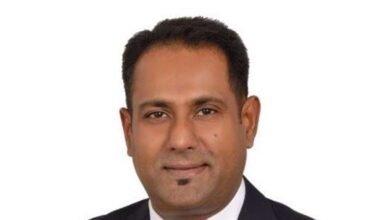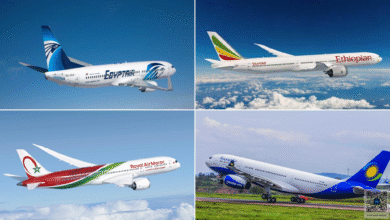Elections in France closely followed by economic operators in African English-speaking countries
Long overtaken by the other powerful countries in African English-speaking countries, France now wants to gain ground through active diplomacy. From the economy through military training, all sectors of activity are increasingly being used. And some English-speaking countries such as Ghana are expecting a lot from the new tenant of the Elysée Palace.
France’s position in African English-speaking countries was in some way raised during the debates between the various candidates for the presidential elections in April 2017 in France. During the five-year mandate of François Hollande, the outgoing president, France is generally still lagging behind, compared to other powerful countries. However, much effort has been made in recent years to reverse the trend thanks to the many advantages cooperation with France could bring to the countries which share the Shakespearean language in Africa. One of the first advantages remains military training. In this regard, some civil society players fear the rise in the polls of the National Front (NF) of Marine Lepen for its nationalist and protectionist policy called « reflective ». For they believe that the NF victory will take a cold shower to France interventions in military training for a policy called « Make France Great Again » in reference to the slogan of Donald Trump, the winner of the general elections in the United States. « The uncertainty generated by François Fillon’s affairs and the division within the Gauche political Party suggest some players that there could be a surprise in France, as was the case in the United States. In addition, Mrs. Lepen admits to support Trump’s protectionist and nationalist measures which are in violation of the existing cooperation agreements. For example, France can put an end to these training courses which are provided free of charge to some African armies, including those in the English-speaking countries, » said Yaw Boateng, a consultant in international relations.
As a reminder, France has made significant advances in military training by supervising some armies, including those in African English-speaking countries since the creation of the International Training Center for Peacekeeping « Kofi Annan » established in Ghana. « Our military cooperation with Ghana mainly focuses on training. It involves French participation in the International Center for Peacekeeping Training « Kofi Annan » (KAIPTC), the teaching of French language in the military environment, dispatching Ghanaian officers on training courses to France or to the National Regional Schools (ENVR). A liaison officer holds a position as an internship director at the KAIPTC, where he contributes to the learning of French language by the Ghanaian troops. He is in charge of organizing annual internships for senior West African officers and relations with other ECOWAS peacekeeping training centers, » said the French representative to Ghana. The strengthening of French military cooperation in African English-speaking countries is not only geostrategic but also economic as it has also enabled France to promote the French defense industry in the area of armaments through cooperation agreements, which also include defense in some African English-speaking countries.
French SMEs face uncertainty in African English-speaking countries
In recent years, there has been a renewed confidence between French SMEs and their counterparts in African English-speaking countries. This is evidenced by the upward trend in trade. For the moment, the election battle in France does not arouse much enthusiasm in African English-speaking countries’ business community. However, some entrepreneurs recognize that it will be crucial in France’s economic and trade relations with its partners in African English-speaking countries established since September 1, 2010, when SMEs support activities at the international level were devolved to UbiFrance which, since its head office in the Ivory Coast, has been working for the establishment of French SMEs in English-speaking Africa.
« It’s true that the business community is not reacting at the moment to the elections in France. But a large number of French companies have partnered in recent years in English-speaking countries such as Ghana and Nigeria. Under the administration of the outgoing Presidency, trade relations between France and Ghana have reached record figures due to some opening measures to boost trade and economic relations. However, the situation may change with the tightening of migration measures due to increasing nationalist and protectionist movement in France” said John Kwabena, an eminent Ghanaian political scientist.
According to the French Embassy to Ghana, bilateral trade between France and Ghana reached a record 1 billion euros in 2015. Ghana mainly provides France with natural hydrocarbons and to a lesser extent agricultural products and food: it is the fifth supplier for France in sub-Saharan Africa. France also exports metallurgical products, mechanical equipment, refined petroleum products and agro-food products. The uncertainty surrounding the elections in France raises some questions among economic operators. « The French Chamber of Commerce in African English-speaking countries has enabled French companies to establish partnerships with their counterparts in English-speaking countries. But the tightening of migration policy may have a negative impact on trade between French companies and their partners in our countries. From now on, it will be much more difficult for economic operators in our countries to move to France if, for example, the NF comes to power with its protectionist measures. But in the era of globalization, it’s no good closing ones borders with the introduction of taxes, if one really wants to trade with the others. That’s why the economic operators are watching closely the evolution of the political situation in France, » explained Nicholas Kwamegh, a Nigerian economic operator working in the export of handicrafts and member of the Nigerian Council for the Promotion of Export. He also explained that the desire to protect French companies from international competition and to « run the economy » by providing them with most opportunities in public order will make foreign companies flee.
The students in English-speaking countries closely follow the poll in France
For a long time considered as a benchmark for training, French education is increasingly emulating in African English-speaking countries. This illustrates the large number of students from these countries who are leaving to complete their studies in France in order to immerse themselves in the language of Molière in a globalized world. France has ensured that education is a showcase of French expertise in on-going education. This is done through cultural exchange programs between university institutions in African English-speaking countries and their French counterparts. But the heated debates that accompanied the election campaign on the thorny issue of immigration raises doubts about a tougher process for obtaining student visas. « I have always dreamed of pursuing my higher studies in France. But given the very radical and almost xenophobic position of some candidates, I can say that obtaining the visa would be the cross and the banner for African students during the next five years, » explained Georgina Abyeku Godwin, a Ghanaian student. But the flexible position adopted by Manuel Macron, the candidate of En Marche, has raised his popularity rating to this segment of the population in English-speaking countries. « I urge that Manuel Macron become the next French president. At least he will not close the doors of French universities with drastic measures. Today, it is more than necessary to study in good French universities because it provides more job opportunities in our English-speaking or French-speaking countries, » explained Atta Mensah, a student who has just completed a training course in France. With respect to diplomacy of some English-speaking countries, the rise in nationalism and protectionism is relativized in the debates of the presidential elections in France. We prefer to keep a good image of cooperation with France. « We organized a visit for a major French delegation to Ghana in February of last year and the French had made us the lift with the visit of the Prime Minister Manuel Valls in October 2016 accompanied by a strong delegation of French economic operators. We discussed with means to formalize cooperation between the educational institutions of France and Ghana. In addition, the opening of the Business France office facilitates trade and investments between the two countries.
So, the relations will still be good between the two countries” explained Johanna Odonkor Svanikier, who was until the end of 2016, the ambassador of Ghana to France. The recent African tour of the French Minister of Finance and Economy, Michel Sapin, was a good opportunity to clear the equivoque when opening France in its relations with Africa, including English-speaking countries. « We act as much with English-speaking countries as with French-speaking ones. Both want to work much more between them. France is now working with everyone, » said Mr. Sapin. In spite of the French finance specialist’s point of view, some private sector stakeholders continue to fear uncertainty hovering over the outcome of the most undecided election of the 5th republic in France.







